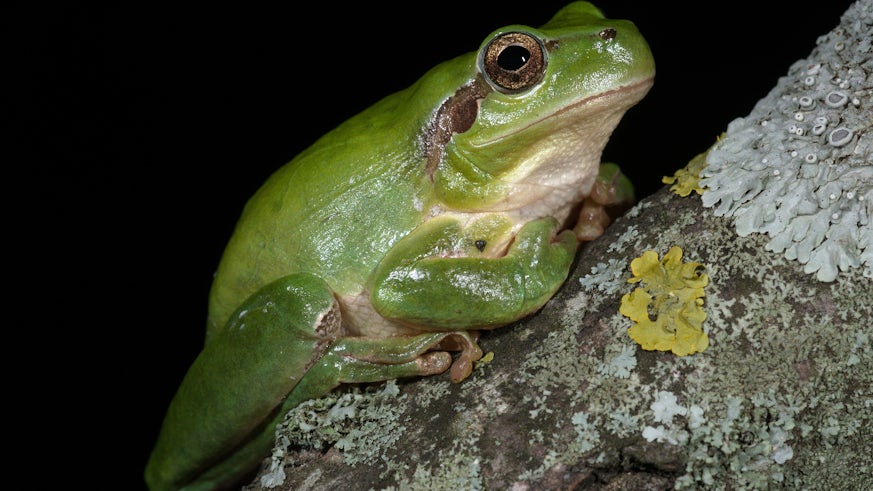Urgent need to expand genetic monitoring of species in Europe
15 January 2024

There is an urgent need to expand the genetic monitoring of species in Europe to help detect the impacts of climate change on populations.
That’s one of the findings of new research undertaken by an international team involving Cardiff University’s late Professor Mike Bruford – a world-leading conservationist – in one of the last studies he undertook before his death.
In research published in the journal Nature Ecology & Evolution, the team looked at the scope of efforts to monitor genetic diversity in Europe, to see whether those efforts are well-positioned to detect the impact of climate change on genetic diversity.
They mapped areas for four groups of species - amphibians, birds, large carnivores, and forest trees.
They found little monitoring of the genetic diversity of species in Europe overall, and what monitoring there has been is heavily skewed towards large carnivores and not towards species in groups that will be heavily impacted by climate change, like amphibians and forest trees.
They also discovered that relatively little genetic monitoring is being conducted in southeastern European countries, where many species will likely first experience the impacts of climate change.
Speaking on behalf of the research team, Professor Peter Pearman, University of the Basque Country, said: “We dedicate this paper in memory of our colleague and friend, Professor Mike Bruford - a passionate scientist whose career was committed to understanding and halting biodiversity loss.
“This research was his brainchild. No-one has ever surveyed the range of efforts to monitor genetic diversity in Europe – until now.
“Mike’s legacy in this paper is a clarion call to urgently expand European efforts to monitor genetic diversity, both in the species that are targeted and the countries in which monitoring occurs, for effective conservation in the future.”
The paper, Pearman, Broennimann et al. ‘Monitoring species genetic diversity in Europe varies greatly and overlooks potential climate change impacts’ is available here.
The study incorporated the efforts of 52 scientists who represent 60 universities and research institutes from 31 countries. The results suggest that European genetic diversity monitoring programs should be adapted systematically to span full environmental gradients, and to include all sensitive and high-biodiversity regions.
Professor Pearman added: “Our research was designed and conducted with European conservation policy in mind and we hope policy makers and politicians take note of these results.”
Professor Mike Bruford was an internationally renowned scientist who helped establish the field of conservation genetics. His work led to real-world actions to support the protection of endangered species around the world, including the Bornean Orangutan and Chinese panda. He passed away in April 2023.
Professor Joanne Cable, School of Biosciences at Cardiff University and a colleague of Professor Bruford said: “Professor Mike Bruford has made a significant and remarkable contribution to the field of Conservation Genetics. His pioneering work has advanced our understanding of genetic diversity and population dynamics in endangered species, leading to more effective global conservation strategies. Mike's research has not only shed light on the genetic underpinnings of species conservation but has also emphasized the importance of genetic data in decision-making processes for managing and preserving biodiversity. His dedication to bridging the gap between genetic research and conservation practice will have a lasting impact on the field. It is fitting that this, one of Mike’s last papers, heralds the way for others to continue his lifelong passion of nature protection.”
Share this story
The School has an international reputation for its teaching and research, and offers some of the top research-led bioscience curricula in the UK.

